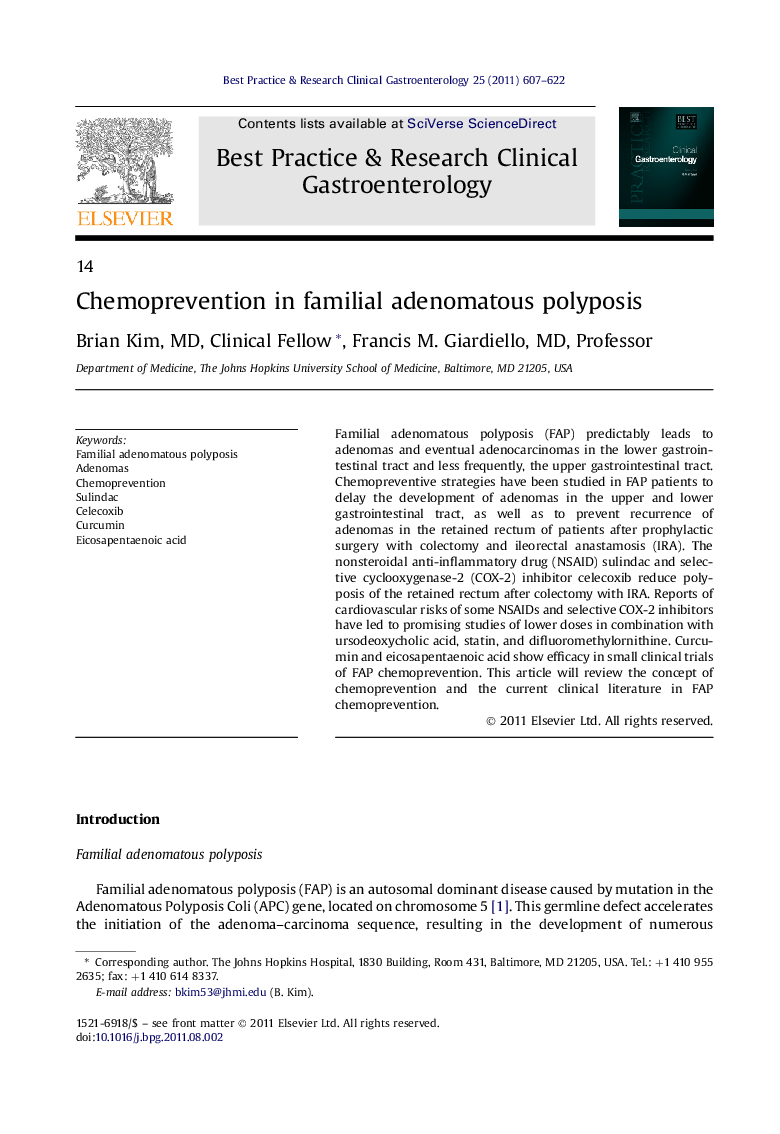| Article ID | Journal | Published Year | Pages | File Type |
|---|---|---|---|---|
| 3254223 | Best Practice & Research Clinical Gastroenterology | 2011 | 16 Pages |
Familial adenomatous polyposis (FAP) predictably leads to adenomas and eventual adenocarcinomas in the lower gastrointestinal tract and less frequently, the upper gastrointestinal tract. Chemopreventive strategies have been studied in FAP patients to delay the development of adenomas in the upper and lower gastrointestinal tract, as well as to prevent recurrence of adenomas in the retained rectum of patients after prophylactic surgery with colectomy and ileorectal anastamosis (IRA). The nonsteroidal anti-inflammatory drug (NSAID) sulindac and selective cyclooxygenase-2 (COX-2) inhibitor celecoxib reduce polyposis of the retained rectum after colectomy with IRA. Reports of cardiovascular risks of some NSAIDs and selective COX-2 inhibitors have led to promising studies of lower doses in combination with ursodeoxycholic acid, statin, and difluoromethylornithine. Curcumin and eicosapentaenoic acid show efficacy in small clinical trials of FAP chemoprevention. This article will review the concept of chemoprevention and the current clinical literature in FAP chemoprevention.
